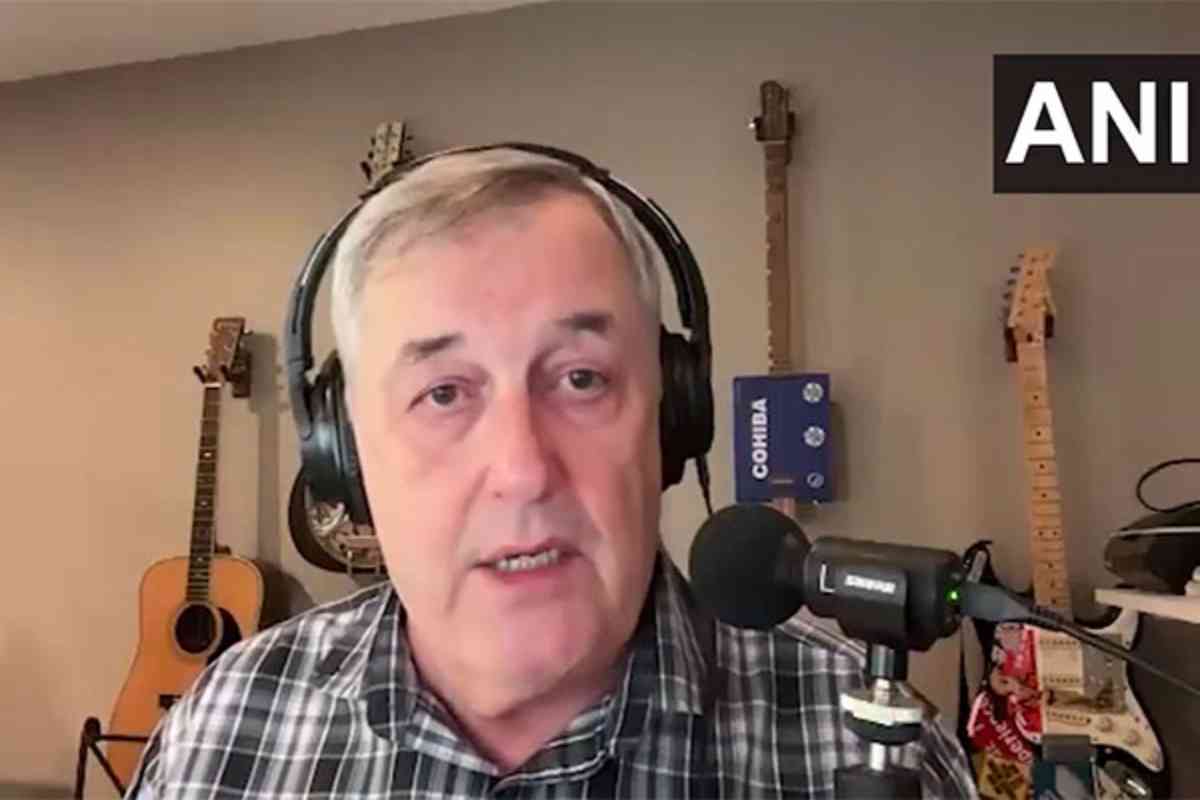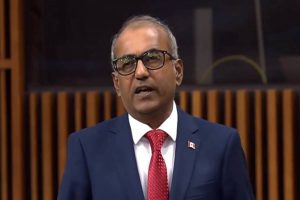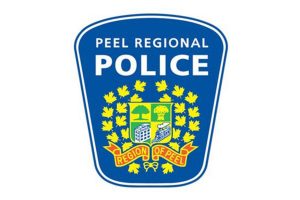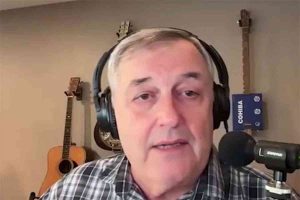Former Toronto Police Sergeant (Detective) Donald Best supported India’s External Affairs Minister S Jaishankar’s criticism that Canada lacks proper vetting procedures for immigrants and expressed concerns that Canada’s visa approval process is flawed, allowing individuals with criminal backgrounds and ties to organized crime in India to enter the country.
In an interview with ANI, Donald Best, who is also an investigative journalist, endorsed concerns of India about Khalistani separatists getting political space in Canada.
“India’s External Affairs Minister has mentioned that Canada is approving visas for people who are criminals and were members of organised crime in India. I believe that it is true. We have absolutely no vetting of our immigrants. It seems that so many people who come to Canada and seek refugee status, not only from India but from around the world, are fleeing their own country because they are wanted criminals. I think this is attracting a great number of Khalistani separatists to Canada because they are protected and they find refuge here and their community is growing…,” said Best.
Ties with Ottawa have seen sharp deterioration with India repeatedly expressing its deep concern about extremism and the culture of violence and anti-India activities in Canada and has asked Canadian authorities to take action against these activities.
There have been very dramatic changes in Canada since Prime Minister Justin Trudeau came to office with “unfettered mass immigration” negatively impacting housing, economy and social services.
Donald Best slammed Trudeau’s policies saying “there is turmoil” in Canada and for a country with a small population of about 40 million, about five per cent of immigrants have come in the last about two years.
“We have seen very dramatic changes in Canada since Trudeau and his government took over. We have seen unfettered mass immigration, which is seriously negatively impacting our housing, economy, social services, hospitals, and health services. We are a very small country population-wise.
We have only 40 million people. But in terms of 40 million people, five per cent arrived within the last year-and-a-half to two years…There is a lot of turmoil here. We also had great criticism that for some reason, Khalistani separatists and Sikhs have undue influence and they have attained positions of power and authority at all levels municipal, provincial and national out of proportion to their population. Many people, including your own External Affairs Minister, talked about how the federal government is propped by the New Democratic Party, in which the opposition leader is Jagmeet Singh, who has appeared with some people associated with the Khalistani movement. I have been told that Mr Singh is not allowed in India,” he said.
According to the Criminal Intelligence Service Canada, over 2,600 organized crime groups are operating in Canada, posing significant threats to public safety and societal stability 2. These groups are involved in various illicit activities, including the illicit drug market, violent crime and financial crime.
The Indian government has expressed concerns about Canada’s perceived leniency towards Khalistani extremists, who are seeking to establish an independent Sikh state.
The Royal Canadian Mounted Police (RCMP) has acknowledged the threat posed by organized crime. However, the Canadian government’s stance on visa approvals for individuals with links to organized crime remains unclear.
“We have a problem in Canada and part of the problem is that the Khalistani separatists seem to be able to do whatever they want to do. A few months ago, in a parade in Alberta, they had pictures of convicted terrorists in India who had murdered people. They had these photos on their vehicles celebrating and venerating these terrorists and ordinary Canadians just look at this and I include many people from India who have been here for decades…Canada has had so many immigration for over hundred years and no matter what is happening in your home country…we try to leave behind all this in Canada, that has been our habit, that’s not happening anymore with the Khalistani separatists..Ordinary Canadians are becoming overwhelmed and it is a shame because it is impacting how they view India and Indians,” Donald Best added.
In recent years, Canada has witnessed a surge in Khalistani extremist activities, including violent protests and attacks on Hindu temples.
An Indian consular camp at the Hindu Sabha Temple in Canada’s Brampton witnessed a “violent disruption” on Sunday in Brampton, near Toronto. The incident sparked widespread criticism in and outside Canada.
Prime Minister Narendra Modi on Monday condemned the “deliberate attack” on Hindu temple in Canada and said that “cowardly attempts to intimidate” Indian diplomats were appalling and New Delhi expects Canadian authorities to ensure justice and uphold rule of law.
The ties between India and Canada took sharp downturn following Canadian leaders making allegations without providing evidence about an assassination on their soil.
External Affairs Minister S Jaishankar, who is in Australia, on Tuesday expressed concerns about the attack on the Hindu temple in Canada, and said the incident shows how “political space” is being given to the “extremist forces” in the country.
“What happened yesterday at the Hindu temple in Canada was deeply concerning.You should have seen the statement by our official spokesperson and also the expression of concern by our PM yesterday. That should convey to you how deeply we feel about it,” Jaishankar said at a joint press conference with Australian Foreign Minister Penny Wong.
Answering another query, he talked about the political space given to “extremist forces” in Canada.”Let me make three comments. One, Canada has developed a pattern of making allegations without providing specifics.
Secondly, when we look at Canada, for us the fact that they are putting our diplomats under surveillance is something which is unacceptable. Third, the incidents (attack on the Hindu Temple) and do look at the videos. I think they will tell you in a way in political space today which has been given to extremist forces there,” Jaishankar said.
India also summoned the representative of the Canadian High Commission earlier this month and handed a diplomatic note in which the government protested in the strongest terms to the “absurd and baseless” references made to Union Home Minister Amit Shah before the Standing Committee on Public Safety and National Security in Ottawa by Deputy Minister David Morrison.





